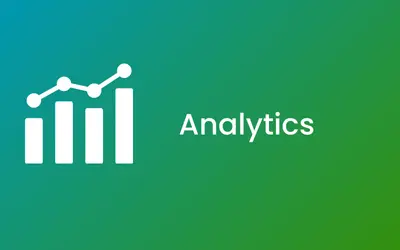An analytics course in Singapore is a popular option for students and professionals looking to enhance their skills in data analysis, interpretation, and decision-making. The demand for skilled data analysts and data scientists has been increasing steadily, and employers are constantly seeking individuals who can use data to inform strategic decision-making and improve business outcomes. Here is a closer look at analytics courses offered in Singapore and why they are beneficial. One of the top analytics courses in Singapore is the Master of Science in Business Analytics (MSBA) program offered by the National University of Singapore (NUS). This program is designed for individuals who want to develop professional skills in data analytics, predictive modeling, machine learning, and data visualization. The program includes courses like data mining, data visualization, optimization, and predictive analytics. In addition to classroom learning, students also get hands-on experience through projects and internships, working with real-world data sets and business problems. Another analytics course in Singapore is the Data Science Bootcamp offered by General Assembly Singapore. This accelerated course is designed to help students develop skills in data analysis, machine learning, and data visualization. Over 12 intense weeks, students learn how to use Python and R programming languages to analyze data, create visualizations, and build machine learning models. The course also includes capstone projects where students work on real-world data sets and present their findings to employers. The Analytics and Intelligent Systems Program offered by the Singapore Management University (SMU) is another popular option for individuals seeking to develop professional skills in analytics. This program covers a range of topics related to data analysis, including data engineering, data mining, machine learning, and natural language processing. Students also have opportunities to gain hands-on experience working on projects with industry partners, allowing them to apply their skills in real-world settings. Beyond these specific programs, there are many other options for learning analytics in Singapore. For example, there are various short courses and trainings offered by organizations and institutions like NTUC LearningHub, IMDA, and SGInnovate. These types of courses can be a great way to learn foundational skills in data analysis or more advanced topics, depending on the level of experience and expertise of the learner. Overall, an analytics course in Singapore can provide individuals with the skills they need to be successful in a rapidly changing data-driven world. From machine learning and data visualization to predictive modeling and data mining, there are many areas of focus within the field of analytics that can help individuals stand out in their professions and make an impact. With the range of options available to learners in Singapore, there is no shortage of opportunities to gain the knowledge and skills needed to succeed in this growing field.

₹60,000


Watch how students, freshers, and professionals transformed their careers with Skillfloor's Analytics Courses Reviews
Hurry Up!
Limited seats call us now for amazing discounts on Analytics Courses course



Skillfloor is a Government-Recognized Skill Development Institute under Startup India (DPIIT), offering career-focused certification programs in Analytics, Artificial Intelligence (AI), Data Science, Digital Marketing, SEO, and related domains. As one of India's largest training institutes, our courses emphasize hands-on projects, expert mentorship, and skills aligned with real hiring needs. With flexible learning options - online, offline, and hybrid, plus 100% scholarships for selective students, we make quality, job-ready education accessible.
Explore the program that aligns with your goals and take the next step with Skillfloor.



- Overview of data analysis and its importance in business
- Types of analytics: Descriptive, Predictive, Prescriptive
- Role of data in decision-making processes
- Introduction to common tools: Tableau, PowerBI, Excel
- Ethical considerations in data collection and analysis
- Data sources: Primary and secondary data
- Data collection methods (surveys, web scraping, databases)
- Data cleaning techniques (handling missing values, outliers)
- Data transformation and feature engineering
- Data storage concepts (structured vs. unstructured data)
- Descriptive statistics: Mean, median, mode
- Data visualization basics (histograms, scatter plots)
- Identifying data patterns and trends
- Outlier detection and handling methods
- Correlation and causation analysis
- Inferential statistics and probability theory
- Hypothesis testing (t-tests, chi-square tests, ANOVA)
- Measures of central tendency and variability
- Confidence intervals and margin of error
- Regression analysis: Linear and logistic regression
- Principles of effective data visualization
- Types of charts and their uses (bar, line, pie, heatmaps)
- Designing dashboards for different audiences
- Interactive visualization techniques
- Data storytelling for impactful presentations
- Time series analysis and forecasting methods
- Clustering and segmentation analysis
- Decision trees and classification techniques
- Introduction to machine learning in business analytics
- Model evaluation and selection
- Basics of SQL for data manipulation
- Creating databases and relationships
- Aggregating data with SQL (GROUP BY, JOIN)
- Data modeling for business intelligence (star and snowflake schemas)
- Case study: Building a business model with SQL
- Connecting and preparing data in Tableau
- Creating basic visualizations (charts, maps)
- Advanced Tableau functions (LOD calculations, table calculations)
- Building interactive dashboards and stories
- Publishing and sharing visualizations on Tableau Server/Online
- Introduction to PowerBI workspace and components
- Data import and transformation with Power Query
- Data modeling and relationships in PowerBI
- Creating and customizing visualizations
- Publishing and collaborating on PowerBI Service
- Selecting a real-world dataset for analysis
- Defining business questions and objectives
- Conducting data analysis and visualization
- Presenting findings in a comprehensive dashboard
- Peer review and feedback on project